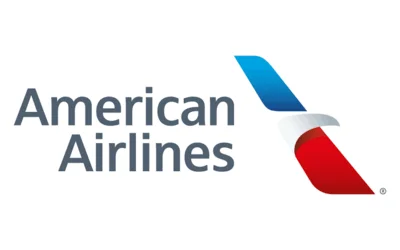The airline’s maintenance operations are managed by Emirates Engineering, one of the largest airline-run MRO (maintenance, repair, and overhaul) complexes globally. The division performs overnight checks on its fleet and collaborates with other companies to locally produce cabin components.
In response to environmental concerns, Emirates has signed multi-year agreements for sustainable aviation fuel (SAF) at key airports such as Dubai, Singapore, and Amsterdam. By 2024, the airline aims for half of all fuel uplifted in Dubai to be blended with SAF—a target highlighted by a successful test flight using a GE-90 engine powered entirely by SAF earlier that year.
United Airlines follows closely with a fleet of 227 widebodies. The carrier is focusing on flexibility through ongoing deliveries of Boeing Dreamliners (787 series), enabling daily adjustments in aircraft size according to demand. United’s Polaris business suites feature across these new planes along with Premium Plus cabins and Bluetooth-enabled entertainment systems.
Older aircraft like the 767-300ER will be retired by 2030 as part of efforts to streamline maintenance and pilot training requirements. United is investing heavily in predictive analytics for maintenance operations and expanding capabilities for Dreamliner checks using real-time sensor data.
Sustainability remains central to United’s strategy; it has committed to purchasing over ten billion gallons of SAF through 2040 while investing in biofuel producers such as Fulcrum BioEnergy and Alder Fuels. The airline is also testing electric ground vehicles at Chicago O'Hare Airport.
Qatar Airways operates a widebody fleet numbering 199 jets. It holds launch-customer status for Boeing’s forthcoming 777-9 model—a plane expected to reduce fuel burn by around 20% compared to current models—and continues integrating Airbus A350-1000s into its network while shifting older A330s into cargo roles until new freighters arrive later this decade.
Qatar Airways’ Qsuite product provides lie-flat privacy pods across most widebody variants; a second-generation version targeting ultra-long-haul flights is currently under development. The carrier also leads globally in air freight through Qatar Airways Cargo with more than thirty dedicated freighter jets supporting trade between Doha and major pharmaceutical hubs worldwide.
The airline is pursuing sustainability initiatives such as multibillion-dollar SAF procurement deals at European and US airports alongside local production efforts in Qatar itself.
Delta Air Lines manages a fleet of 176 widebodies from its Atlanta base. New arrivals include Airbus A350s equipped with Delta One Suites, Premium Select seating, modern entertainment screens, and free high-speed WiFi throughout the cabin—all features being retrofitted onto existing planes where possible.
Delta’s maintenance operation—Delta TechOps—is noted as the world’s largest airline-owned MRO provider. It uses predictive analytics based on extensive onboard sensor data to enhance reliability rates above ninety-nine percent on certain fleets like the A350 series.
Fleet renewal continues rapidly: aging models such as Pratt & Whitney-powered Boeing 757s will retire soon while incoming A350s replace older transatlantic workhorses—improving efficiency by up to twenty-five percent per flight segment according to management projections.
Turkish Airlines rounds out the top five with a current fleet count of 154 widebodies but expects this number will surpass two hundred before decade's end due to pending orders from both Airbus and Boeing manufacturers. This expansion supports increased frequencies across Africa, India, Southeast Asia—and plans nonstop services into Australia for the first time.
New cabin products include business-class suites debuting on future Airbus A350 deliveries plus premium economy options set for incoming A350-1000s—all seats featuring connectivity upgrades like WiFi-enabled inflight entertainment systems accessible gate-to-gate throughout every class section.
On-ground operations benefit from an expanded cargo hub at Istanbul Airport leveraging belly space from passenger flights alongside dedicated freighters—while Turkish Technic maintains self-sufficiency through local composite centers and engine test facilities capable of handling advanced powerplants such as Trent XWB engines.
Turkish Airlines has committed publicly that “an all-SAF first departure” will occur from every continent it serves no later than 2027—a move intended both for competitive advantage regarding price/sustainability balance within its market sector.
 Alerts Sign-up
Alerts Sign-up





































